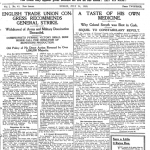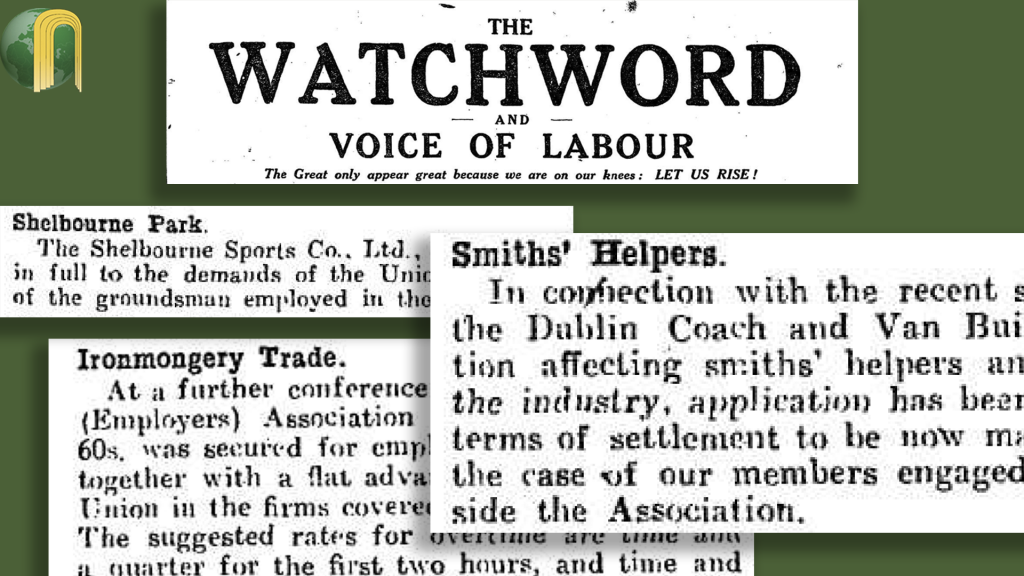As we have already seen, the cause of labour was very much to the fore in every town and village across the country in July 1920 where agricultural labourers and others aired their grievances.
In Dublin and other large centres it was very much the same scenario although involving workers in a different industries. In July Dublin drapers rejected proposals for wage increases, while the issue of holiday entitlements and the number of working hours in the week were also dissatisfactory. More successful were the Dublin ironmongers who accepted the proposed terms, while others such as the Dublin Coach and Van Builders continued to press for their requirements. There was an outcry at the ‘scandalous’ wages being paid to grocers porters and other assistants. In what was seen as a great victory for these workers, Messrs Delahunt agreed to increase the wages of their staff which gave hope that others would follow suit. Elsewhere, there were victories for Shelbourne Park groundskeepers, saw mill operatives and the Dublin Mineral Water production workers. Yet, not everybody was happy with the growing trade unionism within Dublin. When bricklayers and stonemasons went on strike there was outrage that they did not consult other workers on these building sites who were evidently hampered by their actions. These cases were but a sample of the industrial unrest which continued to grow as the War of Independence intensified.Source: The Watchword of Labour 1919-1920, Saturday, July 24, 1920, page 7
 WW_1920_pag7
WW_1920_pag7 